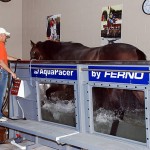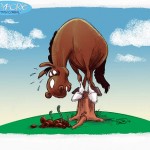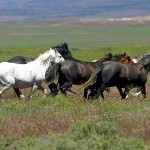
Wellington, FL (January 12, 2011) – The Sanctuary Equine Sports Therapy & Rehabilitation Center, one of the most comprehensive facilities of its kind in the world, will be sponsoring the Peak Performance Award at the 2011 FTI Winter Equestrian Festival (WEF) in Wellington. The Sanctuary, dedicated to the healing, conditioning and well being of all equine athletes, has a world-class facility in Ocala and is opening a new Sanctuary Conditioning and Performance Center on the grounds of WEF, in conjunction with Wellington Equestrian Partners.
“The Sanctuary is proud to sponsor the Peak Performance Award at six of the shows during WEF. The award is in line with The Sanctuary’s goals, which is to contribute to the successful performance of horses through our conditioning and rehabilitation equipment,” said Tom Grabe, The Sanctuary’s Managing Partner. “Our goal at The Sanctuary is to help horses perform at their peak through safe and effective conditioning.”
The Peak Performance Award will be presented to horses with successful performances due to their conditioning and fitness levels. The Sanctuary will also be sponsoring the weekly High Performance Hunter Division Award throughout the prestigious show circuit.





